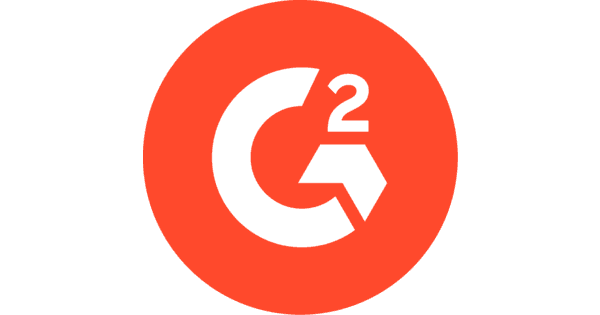Memo: Distributed Delivery Ecosystems
What is a Distributed Delivery Ecosystem, how it functions, and why it will outperform the traditional Partner Network model.
Thesis
The most effective method for SaaS vendors to enable customers in implementation, adoption, and optimization of their product is not a traditional Partner Network model.
† Select Partner relationships serve specific Enterprise use cases.
The primary factors leading us to this conclusion:
Low Control Over Talent Quality
Partners are selected with little to no visibility into the Consultants delivering the final product, while Consultant turnover poses an unpredictable threat to ongoing capacity and quality control.
Low Control Over Delivery Methodology
Establishing delivery best practices and escalation protocols is foundational but realistically, Partners manage resource allocation, set timelines, and operate from incentives aligned with their business.
Increased Implementation Cost & TCO for Customers
This is a result of Consulting Firm's operational inefficiency, the need for high bill rates in order to value sell as a point of differentiation, or both. A material cost passed on to customers.
Lack of Continuous Value Delivery Mechanism
Internal Rev Ops & GTM Systems capabilities vary greatly, often skewing toward dramatic under-resourcing across these functions. This is driving demand for a services model offering the flexibility and pricing that allows for sustainable, continuous value delivery.
An Alternate Model
Distributed Delivery Ecosystem
A term used to define a proprietary, custom built network of Independent Consultants recruited, trained on the product, and deployed across accounts as needed.
Pre-Implementation
A high-velocity, modular approach to Services Delivery.
Vendors have the ability to assemble bespoke Implementation Teams from a pre-vetted network with hundreds of on demand, cross-disciplinary Consultants.
FoundHQ leads the identification and recruitment of Independent Consultants to join the Delivery Ecosystem.
FoundHQ maintains an Internal Marketplace of Consultants accessible only to vendor with Consultant Profiles containing:
Work History, Core Capabilities, Completed Projects & Outcomes
Hourly Rate & Current Bandwidth
Post-Implementation
Continuous value delivery providing customers with direct access to a subset of the Delivery Ecosystem for ongoing strategy, guidance, or ad hoc needs.
FoundHQ maintains an External Marketplace of Consultants accessible only to vendor customers, consisting of Consultants pre-selected by FoundHQ or vendor.
Customer has access to the network for any ongoing, post-implementation needs related to success on vendor's product.
The Case for Distributed Delivery
FoundHQ has demonstrated the effectiveness of Distributed Delivery Ecosystems specific to Salesforce, filling the demand for an alternative to Salesforce Partners across implementations, rescue projects, and ongoing managed services.
Customer Success

WHOOP
Built a team to partner with Business Systems Leadership on Service Cloud and Omni Channel initiatives.

G2
Onboarded 1 Consultant and 1 Data Analyst to help during a CPQ revamp.

Dandelion Energy
Assembled a custom team to replace a Partner midway through a Sales, CPQ, Service, and FSL implementation.

Electric
Multiple engagements of part-time Salesforce Administrators to boost capacity of internal team.

Writer
Hired a solo Salesforce Administrator to partner with the Head of Rev Ops on foundational GTM Systems build.

AuditBoard
10+ FoundHQ Contractors embedded in roles spanning Sales Cloud, CPQ, Tableau, and Marketo.

Deel
Assembled a cross-functional team of 3 to own GTM Systems during growth from $4m to $50m ARR.

Hello Alice
2 Consultants to manage Marketing Cloud - from technical setup & integrations to campaign execution.

LeafLink
An entire Salesforce team through FoundHQ: 2 Admins, 1 CPQ Architect, and 1 fractional Engineer.

Coupa Software
Partnered to jumpstart their global hiring strategy that included Salesforce Engineers based in India.

University of Arizona
Building the early foundation of the Salesforce team with 2 Engineers from FoundHQ.

AgentSync
3 Lead Salesforce Engineers with experience building managed packages to work on core Product.
Key Benefits
Talent Quality
An increasing trend across Salesforce, Hubspot, and other Professional Services ecosystems is top Consultants moving toward Independent Consulting or the launch of boutique Partners.
This trend is especially true for the mid-tier Partners, who require seasoned Consultants & Delivery Leads to play an all-encompassing role spanning Pre-Sales, Practice Leadership, and Delivery for a fraction of what can be earned with a modest client roster as a Freelance Consultant.
Control Over Talent Selection
FoundHQ Customers cite "the ability to select the Consultant delivering the work" as one of the primary benefits.
Companies don't want to select a vendor and hope for the best with who gets assigned to deliver and SaaS vendors should be particularly sensitive to this dynamic when determining the team that will help onboard new accounts.
Modular Approach to Services
The optimal Delivery strategy to reduce Time to Value focuses on task-based assignments, meaning the ability to assign specific phases of the engagement to Consultants with a high degree of specialization in that area.
Traditional Consulting Firms are constrained by the depth of experience on their bench, whereas a Distributed Ecosystem contains every variation of expertise you might need with zero incremental cost to have them in the network, regardless of utilization levels.
Consumption Based Pricing
The default pricing model when engaging Independent Consultants is Time & Materials, meaning no upfront payments or minimum commitment - customers strictly pay for completed work, while receiving full visibility into how time was allocated and what was accomplished for that spend.
Other Benefits of a Distributed Ecosystem
Lower Implementation Costs & TCO
The average hourly rate for a Consultant via FoundHQ is roughly 40% lower than what Consulting Firms bill for the equivalent skill set.
This factor simply comes down to the economics of the Professional Services business model. They carry overhead - from Sales, Marketing, Operations, and bench underutilization - in addition to their need to value sell as a point of differentiation.
Continuous Value Delivery (Post-Implementation)
An ecosystem of verified Consultants covering a range of skills allows vendors to provide a reliable, cost-effective way to access the experience needed for ongoing strategy, ad hoc support, and more.
While this can alleviate some of the burden on Customer Success teams, it's also a unique value add enabling customers to access the resources they need and ensuring you have embedded Product Experts on the ground.
Network Led Growth
Distributed Delivery Networks serve as a potential catalyst for new business growth based on two primary factors.
Nature of Freelancer Relationship to Customer
The typical Independent Consultant functions in an embedded capacity on virtually all customer engagements, serving as an extension of the team more deeply integrated than your traditional Partner
This leads to a tangible increase in the level of trust and credibility Consultants have from the customer's perspective, providing vendors with unique on-the-ground visibility into companies operations during new sales pursuits and post-implementation guidance & expansion.
Scale of Network
While Partner Networks may provide access to the customer base of individual Consulting Firms, a Distributed Delivery Ecosystem unlocks the full network of each individual Consultant - not only clients they actively serve but extending into former colleagues, professional relationships, and more.


Get Matched to the Right Salesforce Consultant
FoundHQ is the easiest way to get work done in Salesforce.
